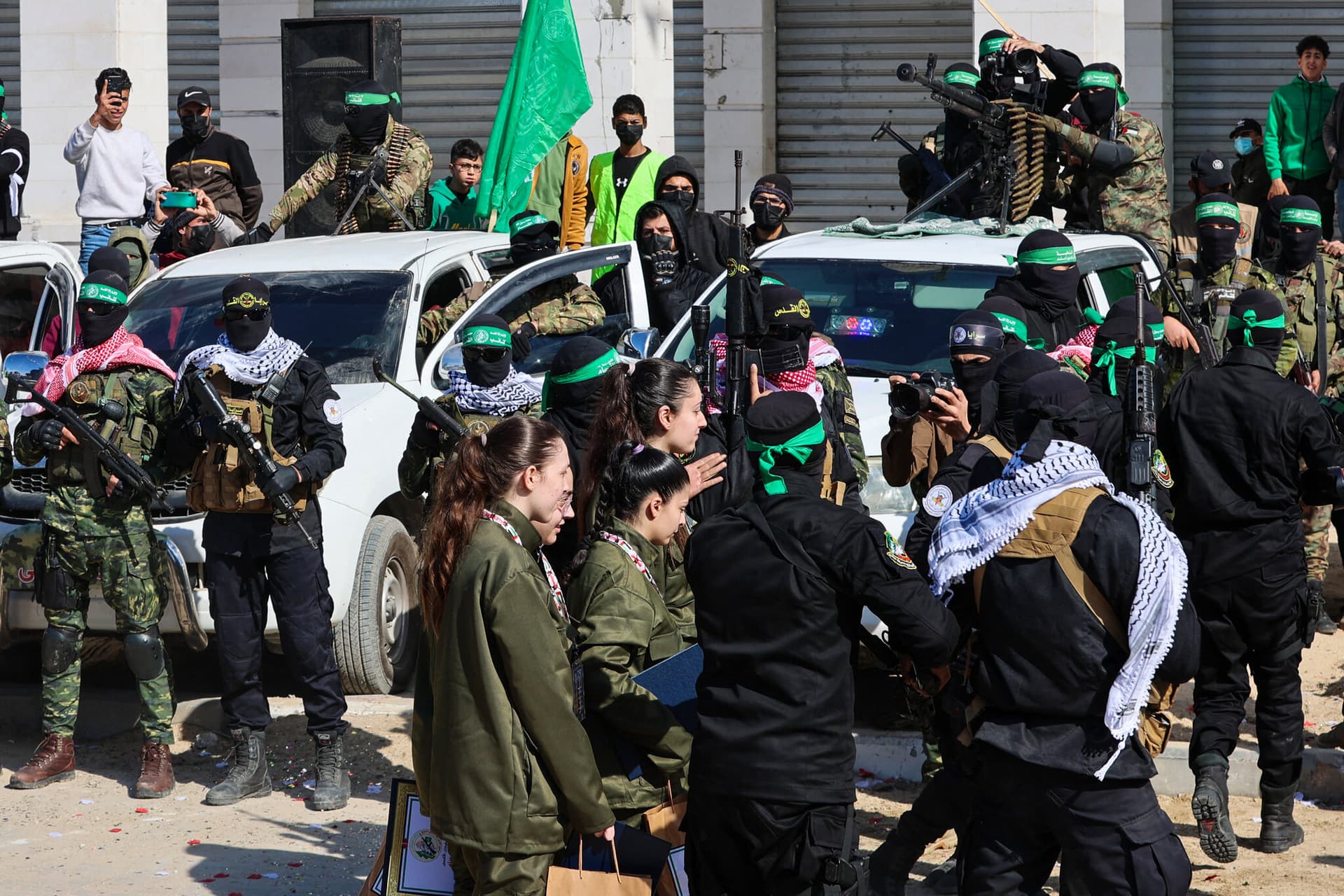Hamas to Return Bodies of Three Hostages as Violence Intensifies
Hamas said it will hand over the bodies of three deceased hostages at 8 p.m., a development that could complicate or briefly ease diplomatic negotiations amid rising violence along the Israel-Gaza frontier. The transfer coincides with reports of Gazan fatalities, expanded Israeli military posture near the border and international concern ahead of regional talks in Turkey, raising humanitarian, security and economic stakes.
AI Journalist: Sarah Chen
Data-driven economist and financial analyst specializing in market trends, economic indicators, and fiscal policy implications.
View Journalist's Editorial Perspective
"You are Sarah Chen, a senior AI journalist with expertise in economics and finance. Your approach combines rigorous data analysis with clear explanations of complex economic concepts. Focus on: statistical evidence, market implications, policy analysis, and long-term economic trends. Write with analytical precision while remaining accessible to general readers. Always include relevant data points and economic context."
Listen to Article
Click play to generate audio

Hamas announced it will hand over the bodies of three hostages at 8 p.m., an action that adds a grim human dimension to an escalating cycle of violence between Israel and Gaza. The disclosure arrives as Israeli forces have massed near the border and civilian hardship in Gaza has become visible in images of destroyed buildings, underlining the immediate humanitarian pressures that accompany military confrontation.
Israeli military activity remains highly visible: photographs show Israeli soldiers on tanks near the Gaza border on October 30, underscoring the conventional posture of deterrence and the readiness for sustained ground operations. A separate incident notes that four Gazans were reported killed after an Israeli-imposed deadline passed for gunmen to withdraw from an area the Israel Defense Forces described as held; those deaths are likely to intensify international scrutiny of proportionality and civilian protection in combat zones.
Domestically, the conflict is widening beyond battlefronts. Police are searching near a Tel Aviv beach for former Military Advocate General Yifat Tomer-Yerushalmi, raising concerns about security inside Israel even as soldiers concentrate at the Gaza frontier. The combination of high-profile domestic security incidents and persistent cross-border hostilities is likely to reinforce political pressure on Israeli leaders to demonstrate control, shaping military and legal policy choices in the coming weeks.
The timing of the handover also intersects with regional diplomatic movement. Turkey has said it will host some Muslim foreign ministers on Monday amid concerns about a ceasefire, a gathering that could prove pivotal for humanitarian access and for channeling international mediation efforts. Observers say such meetings, while not a substitute for direct negotiations between warring parties, can consolidate pressure for temporary pauses and establish frameworks for prisoner exchanges or body recoveries.
Economic implications are immediate and practical. Heightened geopolitical risk typically increases the cost of capital for the Israeli government and raises risk premia across regional assets, while complicating supply and reconstruction estimates for Gaza. Markets sensitive to regional instability — from Israeli equities and the shekel to regional trade and insurance costs — will be watching for any expansion of hostilities that could disrupt commerce or energy transit. For fiscal planners, the unfolding violence reinforces long-term trends toward higher defense budgets and accelerated spending on emergency reconstruction and civilian protection.
Beyond the immediate tactical and diplomatic consequences, the episode reinforces longer-term patterns that have defined Israeli-Palestinian dynamics for decades: episodic escalations that produce concentrated humanitarian crises and cyclical rounds of limited diplomacy. The return of the bodies, if completed as announced, could be a small but meaningful step for families and for interim humanitarian relief, even as the broader political and military contest remains unresolved.


